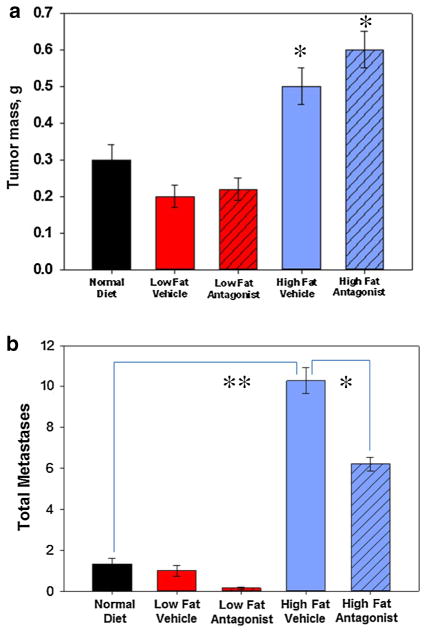Fig. 3.
Role of dietary fat and a CCK-A receptor antagonist on Panc-02 primary pancreatic tumor growth and metastases in vivo. a Panc-02 tumor mass was significantly increased (*p < 0.05) in mice fed a high-fat diet (blue bars) compared to tumors grown in mice given a normal diet (black bar) or a low-fat diet (red bars). No difference in tumor weight was found between mice fed a normal diet or low-fat diet. Tumor mass was not significantly affected by CCK-AR antagonist (hatched bars) compared to their respective vehicle controls. b The total number of tumor metastases was significantly increased in mice on the high-fat diet compared to normal or low-fat diet mice (**p <0.003). Compared to vehicle treatments, the CCK-AR antagonist decreased the number of tumor metastases in high-fat diet fed animals (*p = 0.05). Antagonist = CCK-A receptor antagonist, devazepide; vehicle = DMSO. Bars represent the standard error of the mean of 5–7 mice per treatment group

